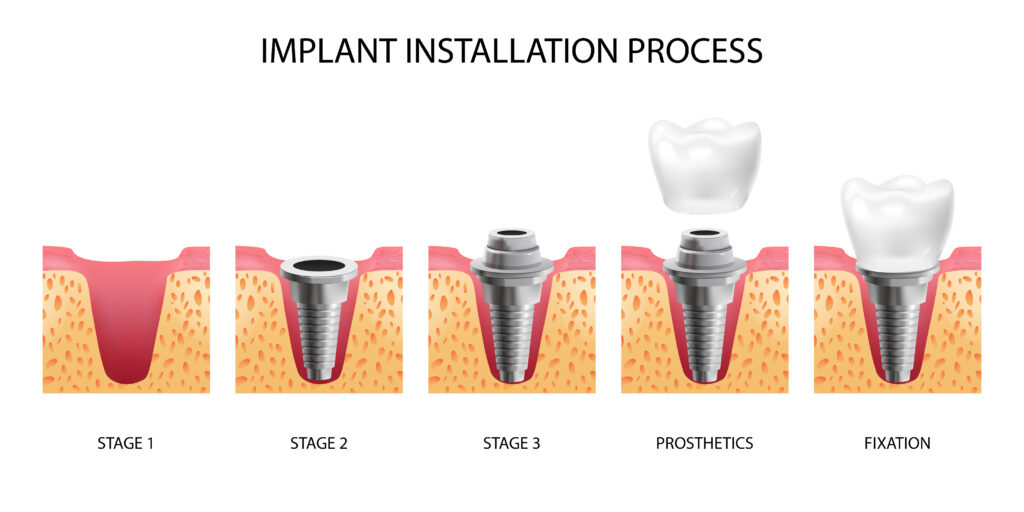What are Dental Implants?
Dental implants are titanium posts surgically placed into the jawbone to serve as artificial tooth roots. Once integrated with the surrounding bone tissue through a process called osseointegration, dental implants provide a stable foundation for replacement teeth, such as crowns, bridges, or dentures.
Benefits of Dental Implants:
Dental implants offer numerous advantages, including:
- Natural appearance: Dental implants look, feel, and function like natural teeth, providing a seamless and aesthetically pleasing solution for tooth replacement.
- Improved function: Unlike removable dentures, dental implants are fixed in place and do not require adhesives or clasps, allowing you to eat, speak, and smile with confidence.
- Preservation of bone health: By stimulating the jawbone through chewing and biting, dental implants help prevent bone loss and preserve facial structure and appearance.
- Long-term durability: With proper care and maintenance, dental implants can last a lifetime, making them a cost-effective and reliable investment in your oral health.
- Enhanced quality of life: Dental implants restore your ability to enjoy your favorite foods, speak clearly, and smile without hesitation, improving your overall quality of life.
The Dental Implant Procedure:
The dental implant process typically involves several steps:
- Consultation and evaluation: Your dentist will assess your oral health, discuss your treatment goals, and determine if dental implants are the right option for you.
- Implant placement: The dental implant surgery involves the placement of titanium implant posts into the jawbone. This procedure is performed under local anesthesia to ensure your comfort.
- Osseointegration: Over the next few months, the dental implants will fuse with the surrounding bone tissue through osseointegration, providing a strong and stable foundation for replacement teeth.
- Abutment placement: Once osseointegration is complete, abutments (connector pieces) are attached to the implant posts to support the final restoration.
- Final restoration: Finally, custom-made crowns, bridges, or dentures are securely attached to the abutments, completing your smile transformation.

Caring for Your Dental Implants:
Proper care and maintenance are essential for ensuring the long-term success of your dental implants:
- Practice good oral hygiene: Brush your teeth twice daily with fluoride toothpaste, floss between your teeth and around the implants, and rinse with an antimicrobial mouthwash to remove plaque and bacteria.
- Attend regular dental check-ups: Schedule routine dental visits for professional cleanings and examinations to monitor the health and stability of your dental implants.
- Avoid harmful habits: Avoid chewing on hard objects, such as ice or pens, and refrain from smoking or using tobacco products, as these habits can increase the risk of implant failure.

